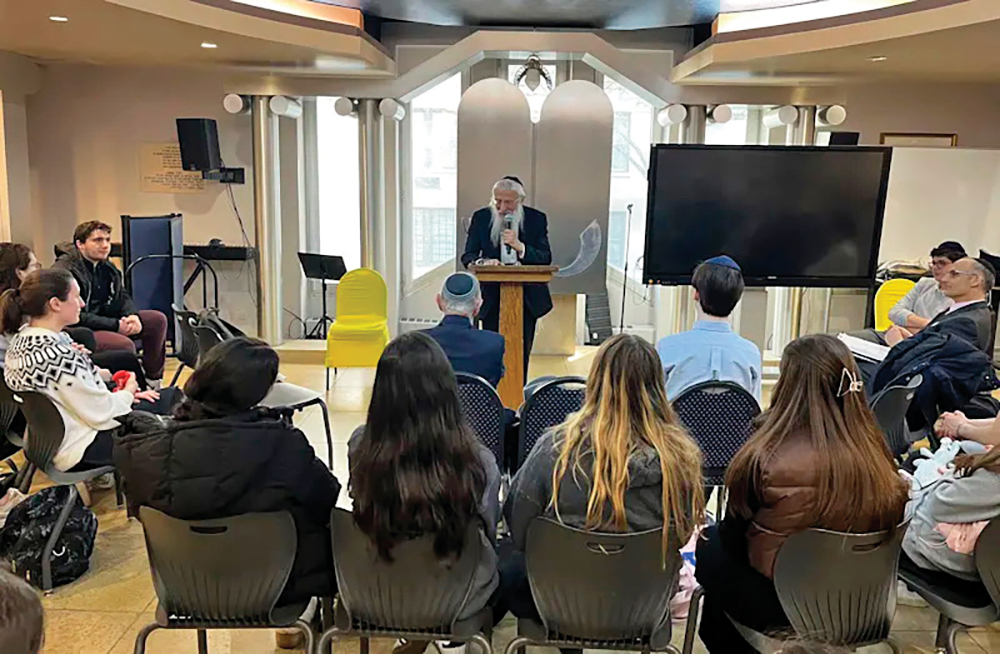
Ramaz seniors felt privileged to meet Rabbi Yosef Mendelevitch, a refusenik from the former Soviet Union who was one of the leaders of the 1970 Dymshits-Kuznetsov hijacking affair. Upper School Principal Rabbi Aaron Frank explained to the students that, just as the current generation has had October 7 and the ongoing war in Israel, the Cold War generation had the plight of the refuseniks. Rabbi Frank revealed that, starting when he was six years old, he wore a bracelet for three years bearing the name of Yosef Mendelevitch, in solidarity with efforts to free him from prison. Rabbi Haskel Lookstein ‘49 said that Rabbi Mendelevitch was one of the greatest catalysts for his own lifelong activism.
Desperate to emigrate to Israel despite the Soviet Union’s restrictions, Rabbi Mendelevitch and 15 other refuseniks put their lives on the line and attempted to escape by hijacking a plane. He said they were aware that they would likely die in the attempt, but that the mere chance to escape to Eretz Yisrael felt well worth the risk. The group purchased all the tickets on a small civilian aircraft and forced the pilots to leave during a layover, planning to fly the plane the rest of the way to Israel. At the layover, they were arrested by KGB officers and given harsh sentences ranging from the death penalty to up to 15 years in prison. Their arrest drew the world’s attention to the refuseniks, and this resulted in international outcry and years-long efforts—in which Ramaz avidly participated—to help the refuseniks emigrate. The outcry led the Soviet Union to relax its emigration restrictions for thousands of refuseniks to leave each year. They also prompted the Soviet Union to reduce the sentences of the hijackers, commuting the death sentences to 15 years in prison and reducing the others’ sentences by a few years each. Rabbi Mendelevitch was released from prison after 11 years.









